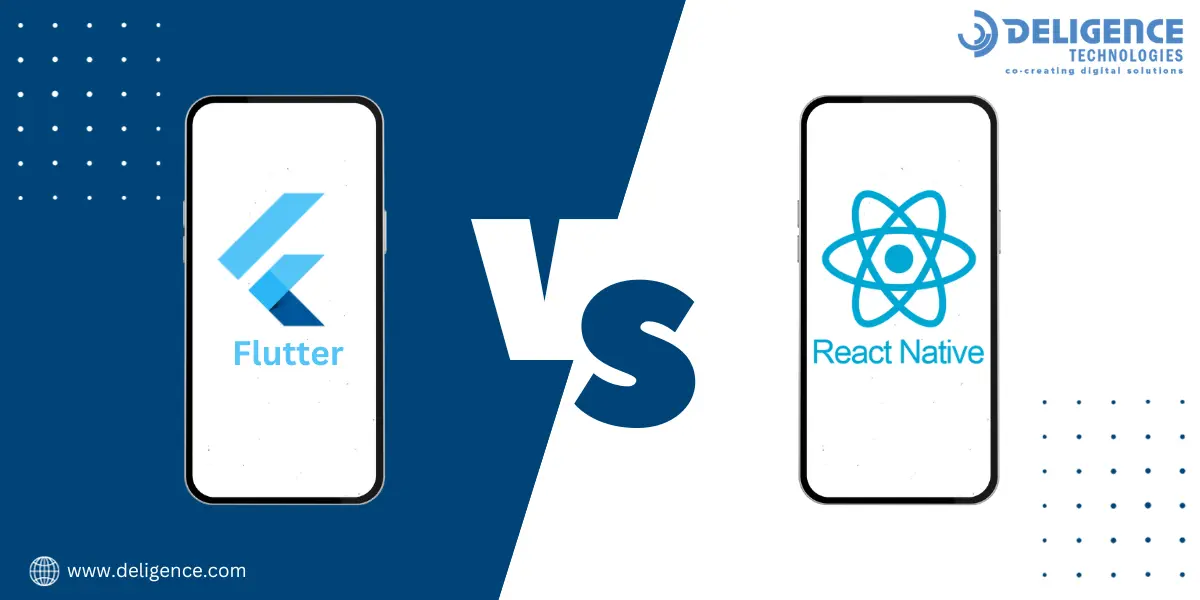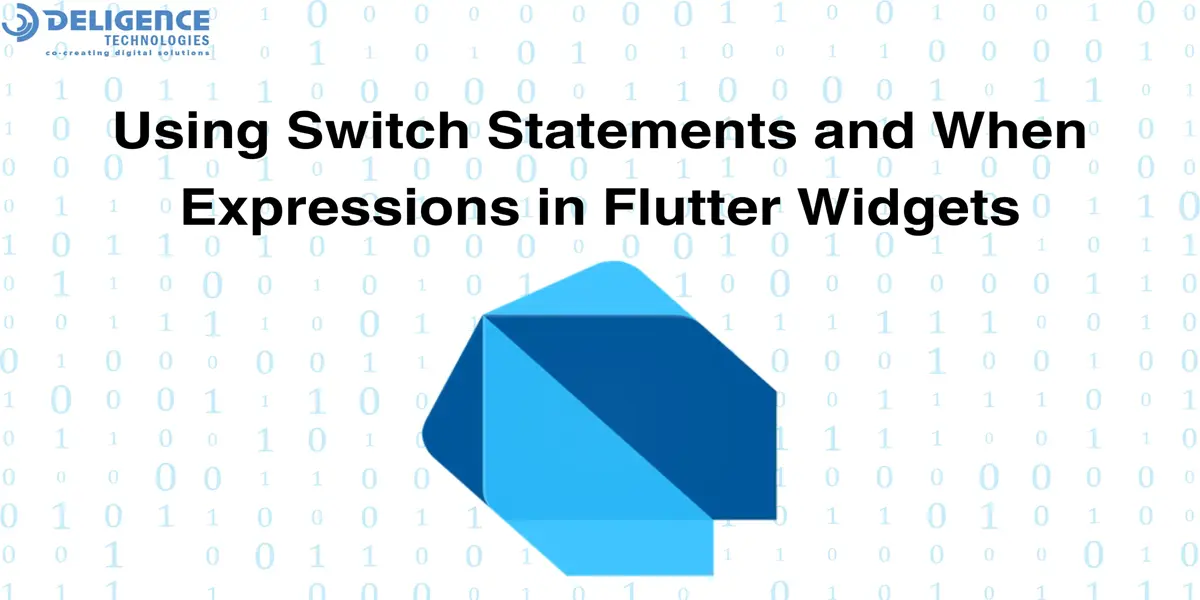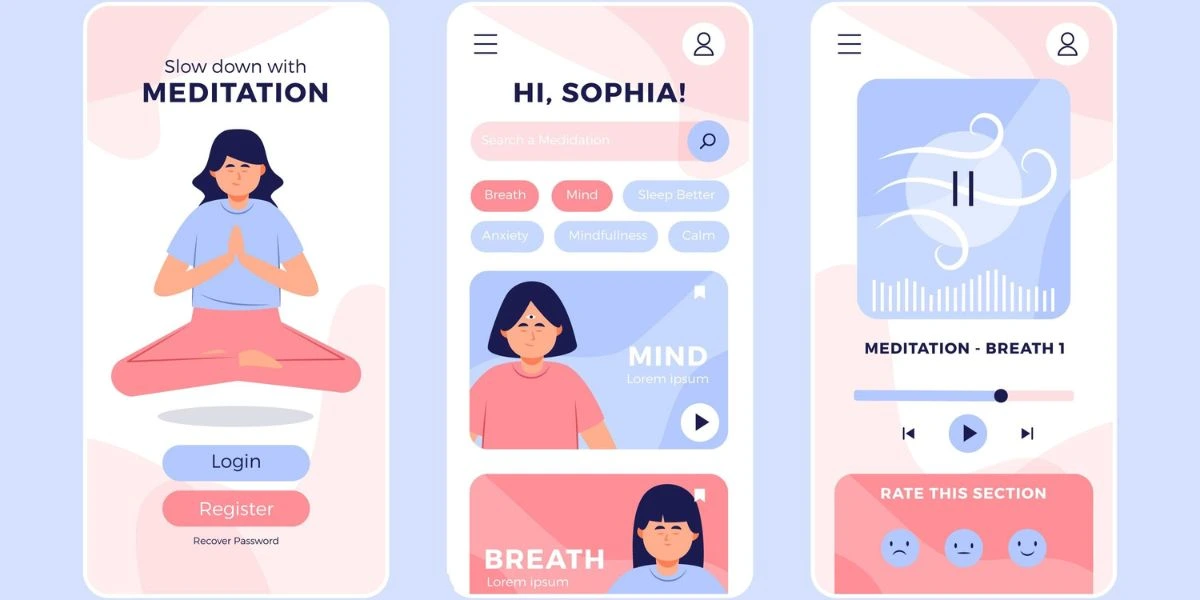Choosing the Right Framework for Mobile App Development: Flutter vs React Native
Mobile app development has witnessed a surge in popularity, thanks to frameworks like Flutter vs React Native, each offering unique advantages to developers. For beginners, making the right choice between these frameworks is crucial. Let’s explore the key aspects of both to help you decide which one aligns with your needs.

Let’s talk about Flutter First:
Mobile App Development with Flutter: A Seamless Experience
Mobile App Development with Flutter: A Seamless Experience
Let’s talk about Flutter First:
Mobile App Development with Flutter: A Seamless Experience
Mobile App Development with Flutter: A Seamless Experience
Flutter, backed by Google, is gaining momentum among developers for its simplicity and high performance. It employs Dart, a developer-friendly language, making it accessible to those new to programming. Flutter’s single codebase feature means you write code once and deploy it on both Android and iOS platforms. This not only saves time but also ensures consistency across devices.
One of Flutter’s standout features is its vast collection of customizable widgets, adhering to Material Design guidelines for Android and Cupertino guidelines for iOS. This ensures a consistent and visually appealing user interface. Flutter’s hot reload functionality allows real-time code changes, facilitating faster debugging and experimentation.
Key Highlights of Flutter for Mobile App Development
Key Highlights of Flutter for Mobile App Development
Single Codebase: Flutter allows you to write a single codebase for both Android and iOS apps.
This means you don’t have to write separate code for different platforms, making it easier to maintain.
Performance: Flutter apps are compiled directly to native code, which leads to high performance and fast execution.
Hot Reload: Flutter offers a hot reload feature, allowing you to see changes in real-time without restarting the app. This can significantly speed up the development process and is great for learning and experimenting.
Rich Widgets: Flutter provides a wide range of customizable widgets, making it easy to create visually appealing and responsive interfaces.
Strong Community: Flutter has a growing and active community, providing ample resources, tutorials, and plugins to help developers.
React Native: JavaScript Power and Extensive Community Support
Potential with React Native: A Robust Development Framework
Potential with React Native: A Robust Development Framework
React Native: JavaScript Power and Extensive Community Support
Potential with React Native: A Robust Development Framework
Potential with React Native: A Robust Development Framework
React Native, developed by Facebook, leverages the power of JavaScript and React, making it a preferred choice for web developers transitioning to mobile app development. With a robust community and extensive third-party libraries, React Native offers a wealth of resources for beginners. Its native modules enable seamless integration with device features, providing a comprehensive toolkit for diverse app functionalities.
React Native’s UI components closely resemble native elements, giving developers the ability to create applications with a native look and feel. The framework’s live reload feature enables developers to see changes instantly, enhancing the development workflow.
Key Highlights of React Native for Mobile App Development
Key Highlights of React Native for Mobile App Development
JavaScript: React Native uses JavaScript and React, making it accessible if you’re already familiar with these technologies. JavaScript is widely used and can be a good starting point for beginners.
Large Community: React Native has a large and established community. There are plenty of resources, libraries, and third-party components available.
Flexibility: React Native allows you to write some parts of your app in native code if needed. This can be beneficial when you need to integrate platform-specific features.
Live Reload: Similar to Flutter’s hot reload, React Native offers a live reload feature, allowing you to see changes instantly.
Comparison between Flutter and React Native
Comparison between Flutter and React Native
| Aspect | Flutter | React Native |
|---|---|---|
| Programming Language | (Simplicity and readability) | JavaScript and React (Widely used, especially in web development) |
| Codebase | Single codebase for Android and iOS | Single codebase for multiple platforms |
| Performance | Compiled to native code, excellent performance | Uses a bridge for communication with native modules |
| User Interface | Rich customizable widgets, consistent across platforms | Components closely resemble native UI elements |
| Development Tools | Hot reload for real-time code changes | Live reload for instant feedback on code changes |
| Community | Growing community, expanding ecosystem | Large, mature community, extensive resources and libraries |
| Integration | Wide range of plugins for integration | Strong integration capabilities with native modules |
| Learning Curve | Dart’s simplicity makes it accessible | JavaScript and React knowledge can be advantageous for web developers |
| Flexibility | Provides flexibility through plugins | Offers native modules for platform-specific functionalities |
Which One to Choose between Flutter vs React Native
Which One to Choose between Flutter vs React Native
If you prefer a single codebase and a focus on performance: Flutter might be a better choice. It’s a great option if you want to learn a technology that’s growing rapidly and offers a lot of flexibility in terms of design.
If you prefer JavaScript and a larger community: React Native might be a better choice. It’s a solid option if you’re already comfortable with JavaScript and want to leverage your existing skills.
Choosing between Flutter and React Native boils down to your preferences, project requirements, and familiarity with programming languages. If you prioritize a single codebase, performance optimization, and a thriving community, Flutter is the way to go. On the other hand, if JavaScript proficiency and a vast, experienced community resonate with your goals, React Native is an excellent choice













